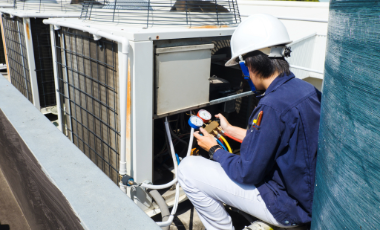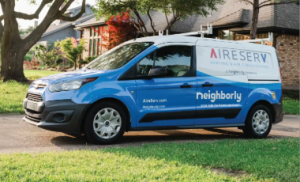Simple Steps to Enhance Energy Efficiency: A Bay Area HVAC Expert’s Guide
Understanding Energy Efficiency and its Importance in HVAC Systems
Energy efficiency is a crucial aspect of HVAC systems, as it directly impacts both the environment and the homeowner’s wallet. HVAC systems account for a significant portion of a household’s energy consumption, making it essential to optimize their efficiency. Energy-efficient HVAC systems not only reduce greenhouse gas emissions but also result in substantial cost savings for homeowners.
According to the U.S. Department of Energy, heating and cooling account for nearly half of the average household’s energy expenses. This statistic highlights the importance of energy efficiency in HVAC systems. By improving energy efficiency, homeowners can significantly reduce their energy bills while minimizing their carbon footprint.
Identifying Common Energy Wasters in HVAC Systems
To enhance energy efficiency, it is crucial to identify and address common energy wasters in HVAC systems. One common culprit is air leaks in ductwork, which can lead to significant energy losses. According to the Environmental Protection Agency (EPA), up to 30% of conditioned air can escape through leaks in ducts. Sealing these leaks can result in substantial energy savings.
Another energy waster is outdated or improperly sized equipment. Older HVAC systems tend to be less efficient compared to newer models. Additionally, improperly sized equipment can lead to inefficiencies and increased energy consumption. Consulting with an HVAC professional can help homeowners determine if their equipment needs upgrading or resizing to optimize energy efficiency.
Implementing Simple Strategies to Improve Energy Efficiency
There are several simple strategies homeowners can implement to improve energy efficiency in their HVAC systems. One effective approach is to regularly clean or replace air filters. Clogged filters restrict airflow, forcing the HVAC system to work harder and consume more energy. By cleaning or replacing filters every one to three months, homeowners can ensure optimal airflow and energy efficiency.
Another strategy is to utilize programmable thermostats. These devices allow homeowners to set different temperature levels for different times of the day, ensuring that the HVAC system operates efficiently when needed and reduces energy consumption when not in use. According to the EPA, homeowners can save up to 10% a year on heating and cooling costs by simply lowering their thermostat by 7-10 degrees Fahrenheit for eight hours per day.
Maximizing Energy Savings with Professional HVAC Maintenance
While homeowners can take several steps to enhance energy efficiency, professional HVAC maintenance is crucial for maximizing energy savings. Regular maintenance by an HVAC expert ensures that the system operates at peak efficiency, identifying and addressing any potential issues before they become major problems.
During maintenance visits, HVAC professionals can clean and inspect components, check refrigerant levels, and calibrate thermostats to ensure optimal performance. By keeping the system in top condition, homeowners can enjoy improved energy efficiency, lower energy bills, and increased longevity of their HVAC equipment.
In conclusion, understanding energy efficiency and its importance in HVAC systems is essential for homeowners in the Bay Area and beyond. By identifying common energy wasters and implementing simple strategies like sealing air leaks, upgrading equipment, and utilizing programmable thermostats, homeowners can significantly enhance energy efficiency and reduce their environmental impact. However, to maximize energy savings, it is crucial to invest in professional HVAC maintenance to ensure optimal performance and longevity of the system. By taking these simple steps, homeowners can enjoy a comfortable indoor environment while saving money and contributing to a greener future.


